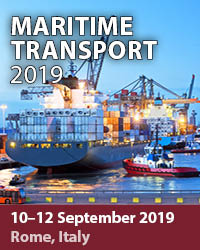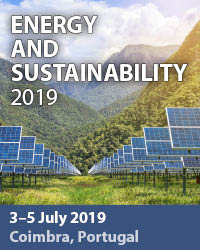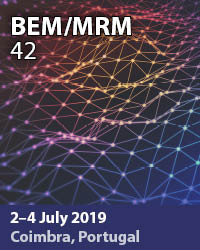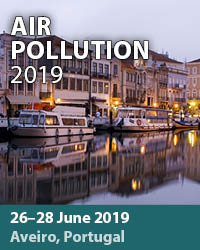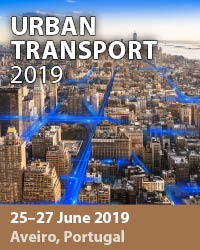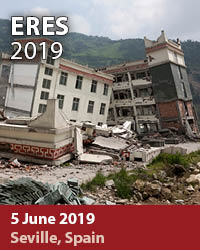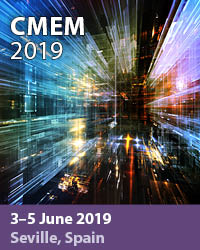Sustainable City 2019
13th International Conference on Urban Regeneration and Sustainability

1–3 October 2019
Valencia, Spain
Overview
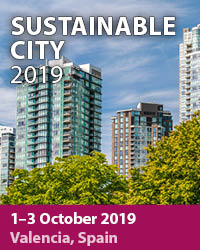
The 13
th International Conference on Urban Regeneration and Sustainability took place in Valencia, Spain, from 1
st to 3
rd
October 2019. The Conference was organised by the Wessex Institute, UK,
represented by Professor Stefano Mambretti, and the Polytechnic
University of Valencia, represented by Professor Jose Luis Miralles i
Garcia.
The conference, which started in Rio, Brazil (2010), is
well-established and always attracts a substantial number of
contributions from different backgrounds and countries. The variety of
topics and experiences is one of the main reasons behind the success of
the series.
Conference Publication
Accepted papers presented at this conference will appear in Vol. 238
of the WIT Transactions on Ecology and the Environment (ISSN:
1743-3541). Papers included in this volume will be available Open Access
in the eLibrary of the Wessex Institute (
https://www.witpress.com/elibrary) from where they can be freely downloaded by any interested parties.
Opening of the Conference
The conference was opened by Professor Mambretti and Jose Luis
Miralles who welcomed the delegates to the conference, before paying
tribute to the founder of the Wessex Institute, the late
Prof Carlos A Brebbia.
Professor Mambretti then mentioned that the main objective of WIT is
the dissemination of knowledge, with particular emphasis on science and
engineering. Another way in which this is achieved is by the publication
of papers from conferences and Journals, through its publishing arm,
WIT Press.
Professor Miralles i Garcia of the Polytechnic University of
Valencia, gave a presentation welcoming the delegates to the city of
Valencia.
Invited Presentations
There were a series of invited lectures on advanced topics of research and applications, as follows:
- “Energy rehabilitation of buildings through phase change materials
and ceramic ventilated facades”, by Victor Echarri, University of
Alicante, Spain
- “The effective and emotional dimension of built space - assessment
to risk reduction process. Heritage as stability benchmark in
sustainable city”, by Cristina Gociman, University of Architecture and
Urban Planning, Romania
- “Personal travel planning - a review of soft transport measure
criteria and effects”, by Daniela Muller-Eie, University of Stavanger,
Norway
- “Mapping land-changes using GIS to identify the potential supply of
regulating services in a mountain ecosystem: the high-Andean Puna”, by
Jose Luis Miralles i Garcia, Polytechnic University of Valencia, Spain
- “Planning long-term management for historic cities. The rock
integrated and sustainable management plan”, by Danila Longo, University
of Bologna, Spain
- “The future of dwelling: Density”, by Camilo Cerro, American University of Sharjah, United Arab Emirates
- “Architectural programming for balanced local urban centre”, by Robert Barelkowski, West-Pomeranian University, Poland
- “Sustainability of historical and artistic heritage buildings”, by
Alejandro Acosta Collazo, Autonomous University of Aguascalientes,
Mexico
Conference Sessions
The papers presented during the conference were classified under the following headings:
- Urban strategies
- Planning, development and management
- Quality of life
- The community and the city
- Architectural issues
- Urban conservation and regeneration
- Planning for risk and natural hazards
- The community and the city
- Cultural heritage sites
- Urban transportation and planning
- Environmental monitoring, assessment and management
There were numerous occasions for holding informal discussions during the coffee breaks and the complimentary lunches provided.
Organ Concert
On the first evening of the conference, delegates were invited to
attend an organ concert by Arturo Barba at the Sagrado Corazon de Jesus
Church. Arturo is an internationally recognised organist born in
Valencia. The concert was organised in celebration of the Prigogine
Medal Ceremony which took place the following day.
Prigogine Award Ceremony
The Prigogine Medal was established in 2004 by the University of
Siena and the Wessex Institute to honour the memory of Professor Ilya
Prigogine, Nobel Prize Winner for Chemistry. Prigogine’s ideas
established the basis of ecological systems research. The Prigogine
medal to honour his memory is awarded annually to a leading scientist in
the field of ecological systems. All recipients have been deeply
influenced by Prigogine’s work.
The 2019 Prigogine Award Ceremony took place on Wednesday, 2
nd October at the Polytechnic University of Valencia and was awarded to Professor Luc Montagnier.
The ceremony was opened by the Rector of the University, Dr Francisco
J Mora Mas, who welcomed the delegates to his university and presented
Prof Montagnier with his medal.
Professor Luc Montagnier graduated in Medicine as well as in
Biological Sciences at the University of Paris. At the age of 23, he
became an Assistant to a Professor there.
After a fruitful post-doctoral stay at two British laboratories, he
spent most of his career at two renowned French institutions, namely the
Institut Curie and the Institut Pasteur in Paris. At the Institut
Pasteur, where he spent almost 30 years, he founded the Viral Oncology
Research Unit within the Department of Virology. His focus was cancer
viruses, mainly the oncogenic retroviruses, and the biochemical aspects
of interferon and malignant transformation, including membrane changes
in relation to the growth in soft agar, for which he contributed to the
revelation of a new property of cultured malignant cells.
In 1983, Montagnier led the team which first isolated the Human
Immunodeficiency Virus (HIV1) and brought the first evidence that this
virus was the causative agent of AIDS. In 1985 he isolated the second
AIDS virus (HIV2) from West African patients.
Montagnier’s Laboratory was also the first to show that a large
percentage of the white blood cells in HIV infected patients were prone
to dying by apoptosis, a process of programmed cell death and to
attribute its origin to the oxidative stress occurring in the patients,
possibly associated with co-infections.
His current work is in the diagnosis and treatment of microbial and
viral factors associated with cancers, neurodegenerative and articular
diseases, using innovative technologies. As a strong advocate of
preventive medicine, he is especially concerned with prolonging the
active life of ageing people.
Beyond Montagnier’s scientific interest is his deep involvement in
helping developing countries to acquire knowledge of and access to
modern and preventive medicine. As President of the World Foundation for
Aids Research and Prevention, he has co-founded two Centres for the
prevention, treatment, research and diagnosis of AIDS patients in Ivory
Coast and Cameroon.
Ten years ago, Professor Montagnier co-founded CHRONIMED, an
international group of physicians treating chronic diseases including,
but not limited to, Autism spectrum diseases, Alzheimers, Lyme, Multiple
Scleroses and Cancer.
Various treatment modalities are used for these multi-factorial
conditions. Most of these treatments were developed upon the research of
Montagnier and his Chronimed associates.
At its premises in Geneva, Switzerland, Fondation Luc Montagnier,
together with its associated Chronimed clinicians, carries out cutting
edge research and treatments, bringing in international investigators in
various fields.
Luc Montagnier has been awarded many Prizes, including Prizes Rosen
(1971), Gallien (1985), Korber (1986), Jeantet (1986), the Lasker Prize
in Medicine (1986), the Gairdner Prize (1987), Santé Prize (1987), Japan
Prize (1988), King Faisal Prize (1993), Amsterdam Foundation Prize
(1994), Warren Alpert Prize (1998), Prince of Asturias Award (2000) the
induction to the National Invention Hall of Fame (2004). He is
Commandeur de l'Ordre National du Mérite (1986) and Grand Officier of
the Legion of Honour (2009)
In 2008, he was awarded the Nobel Prize for Physiology and Medicine,
for his discovery of HIV, together with Françoise Barre-Sinoussi.
He is the author or co-author of 350 scientific publications and of more than 150 patents.
Professor Montagnier presented a special Prigogine lecture "New Paradigm in Biology".
Following this, the university offered a cocktail reception.
Conference Dinner
The conference banquet took place in the unusual setting of the
restaurant located under the city Aquarium, and surrounded by a 360
degrees water tank. The excellent dinner, consisting of different
courses with good local wines, helped to create a convivial atmosphere
for the participants. The short walk from the conference location to the
restaurant allowed them to appreciate some of the works of Santiago
Calatrava, including his Palace of Arts, the Museum of Sciences and the
Agora, as seen from the bridge built by Calatrava over the old bed of
the Turia River. The Aquarium building in the Oceanographic Centre, as
well as its companion structure where the restaurant was located, is the
work of the renowned Mexican engineer, Felix Candela, and consists of
two very attractive hyperbolic paraboloids. The banquet was most
successful.
Closing of the Conference
The conference was closed by Professor Mambretti who thanked the
delegates for attending and hoped that they would consider attending the
next conference in the series which is due to be reconvened in 2020 in
Rome.
Related Conferences
Eco-Architecture 2020, 5–7 May 2020
SDP 2020, 6–8 May 2020
Urban Agriculture 2020, 12–14 May 2020
Water Pollution 2020, 13–15 May 2020
Air Pollution 2020, 8–10 Jun 2020
Environmental Impact 2020, 10–12 Jun 2020
Waste Management 2020, 7–9 Jul 2020
Sustainable Tourism 2020, 8–10 Jul 2020
Sustainable City 2020, 22–24 Sep 2020
View Sustainable City 2019 Photos
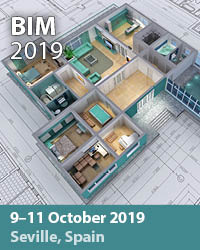
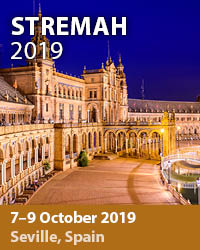
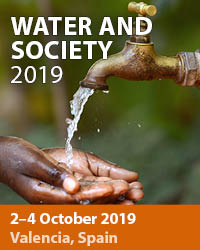

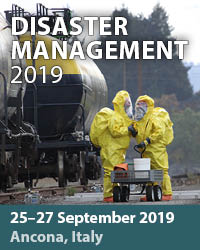
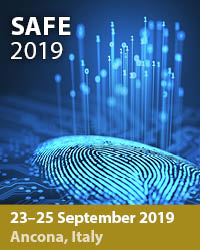
![Coastal Cities 2019]](https://www.wessex.ac.uk/images/conferences/2019/cc19.jpg)
